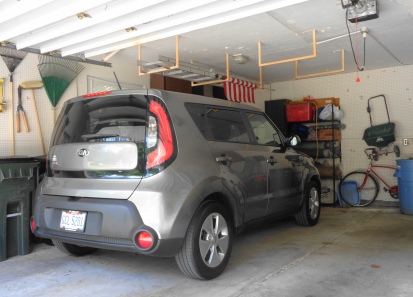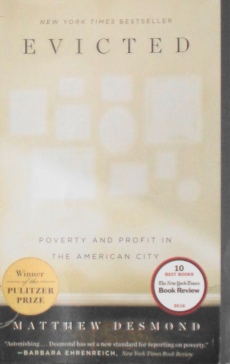I scroll past the vast majority of memes I see online because they are shallow and often untrue. They are easily misunderstood. I speak from experience; I comment on them occasionally, and have been told I missed the point.
But this one caught my attention. For one, I hadn’t seen it before. For two, I like the message it presents.
I actually like it.
… touch the past, touch a rock
My wife and I recently spent a weekend at the Ark Encounter and Creation Museum in northern Kentucky. We touched rocks, and other things.

Both attractions were designed and built by Answers in Genesis, an organization that “advocates Young Earth creationism on the basis of its literal, historical-grammatical interpretation of the Book of Genesis,” according to Wikipedia. While there, I bought a book, “A Flood of Evidence; 40 reasons Noah and the Ark still matter” by Ken Ham, who founded Answers in Genesis in 1994, and Bodie Hodge, his son-in-law.
They use the Bible to prove itself.
If you believe the Bible is the inspired Word of God, which I do, that’s fine, but I don’t see this book convincing anyone of its truths who doesn’t accept the Bible’s inerrancy. That eliminates most Americans.
The book, the Ark and especially the Creation Museum use rocks to explain how fossils formed quickly when plants (mostly) and animals died. Plants and animals that die naturally don’t fossilize; they decay. It took a quick catastrophic event, such as Noah’s Flood, to bury plants and animals in a hurry, allowing them to fossilize.
Noah’s Flood also formed the Grand Canyon. That masterpiece of God’s creation was not formed over millions of years by a tiny river. The book and museum discuss this too.
And they mention Mount St. Helens which, when it erupted in 1980 and again in 1982, made rock formations in hours and days that scientists previously thought took millions of years.
Rocks, as this meme indicates, are a window to the past. We interpret the rocks differently, depending on what we’re looking for.
But the past is gone. We can’t change it. We interpret it and try to re-interpret it (are some people truly trying to say the Holocaust never existed, or that man never walked on the moon?). We study the past to learn how best to live today. Or, that should be why we study the past.
… touch the present, touch a flower
I’ve been on a weeding kick recently. Our yard and gardens are full of them, unfortunately. It seems like it’s a never-ending battle. Weeds choke off plants and flowers.

I’m not an expert on flowers, but I see them bloom for a time, then disappear. Annuals bloom for one season, then die. Perennials bloom year after year, going dormant during the winter, then re-emerging in all their beauty in the spring.
I think this is what the meme is trying to say. Flowers are beautiful today. We enjoy them in the present. We’d better, because tomorrow they’re gone.
Even perennials don’t live forever. They have to be replaced with other flowers eventually, if you want to keep your garden colorful.
A sunset. A rainbow. Sparkling ripples on a slow-moving lake or river. A fall color tour. A gentle breeze.
Such beauty. Nature can be so wonderful.
Then, it changes. The beauty is gone.
Night. The storm that precedes the rainbow. Crashing waves. A frigid winter snow. No breeze at all in 90-degree heat.
We endure, hoping for the touch of a flower once again.
… touch the future, touch a life
People matter. We so often forget this.
If you’ve read this far, hopefully I have touched you at some level.
But touching a life involves so much more than words on a printed page.

I volunteer at a food pantry twice a week. I’ve met an 18-year-old girl who is head of household for her family of six. Her mother passed away a year ago, and now she’s in charge at home. At 18.
We at the food pantry can help her for a day or two. What then?
I also volunteer at a once-a-week after-school pick-up basketball ministry that our church youth director organizes. After playing for a couple of hours on a recent Thursday, one of the young men told us how he’s trying to build a life for himself and lead his teenage brother down the right path, even though both of their parents – who are separated – are drug addicts.
Can we make a difference in the lives of either of these families? Are we touching the future when we connect with young people at these events?
I come home to a nice house in a decent neighborhood. No one is forcing me to touch a life.
Actually, that’s not true.
Since I call myself a Christian, and since I try to live by the Bible, God Himself commands in that Bible that I must connect with other people at some level.
You are watching. I know you are. If I call myself a Christian, what do you see?
I must serve.
Far too many “Christians” use the Bible to try to justify sinful lifestyles. Jesus was crucified for saying exactly this. The apostle Paul was stoned, flogged and beaten for saying exactly this.
What does it mean to touch a life?
It’s not about me, trying to justify myself at all. That’s an easy way to identify “fake Christians.” What’s our motive? Is it to serve others? Is it to touch a life?
This will be our legacy. If we want to touch the future, we MUST touch a life. That life will continue on after I’m gone.
Already, I’ve lived in South Euclid, Ohio; Bloomfield Hills, Mich.; New Kensington, Pa.; East Lansing, Mich.; Ridgewood, N.J.; Pickford, St. Ignace and Saginaw, Mich.; Rockford, Ill.; and Elyria, Ohio.
I touch people, and I’m gone. You touch me, and I leave. I take part of you with me wherever I go.
Because you have touched my life.
Thank you.
I hope I am worthy of your time. I hope I have helped you get just a little closer to God because I was there.
Don’t be too hard on me when I let you down. I try not to criticize when I see others fall. We’re in this life together.
The future will change because both of us are here in the present. That’s a given.
How will the future change? For good or evil?
May the rock and the flower guide us as we learn how to touch a life. No matter where our lives take us.







